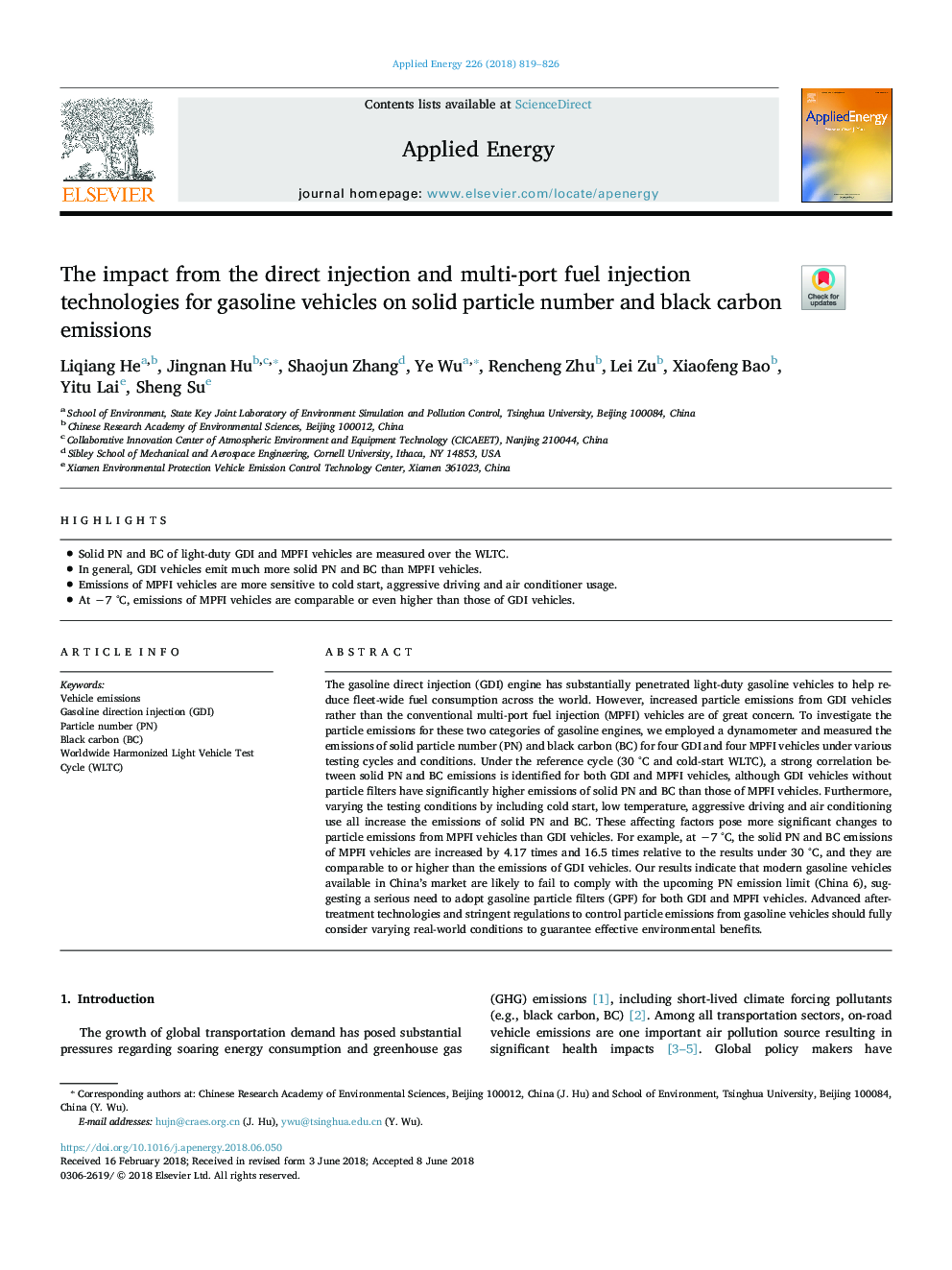| کد مقاله | کد نشریه | سال انتشار | مقاله انگلیسی | نسخه تمام متن |
|---|---|---|---|---|
| 6679795 | 1428064 | 2018 | 8 صفحه PDF | دانلود رایگان |
عنوان انگلیسی مقاله ISI
The impact from the direct injection and multi-port fuel injection technologies for gasoline vehicles on solid particle number and black carbon emissions
ترجمه فارسی عنوان
تاثیر تزریق مستقیم و چند پورت تزریق سوخت برای وسایل نقلیه بنزین بر تعداد ذرات جامد و انتشار کربن سیاه
دانلود مقاله + سفارش ترجمه
دانلود مقاله ISI انگلیسی
رایگان برای ایرانیان
موضوعات مرتبط
مهندسی و علوم پایه
مهندسی انرژی
مهندسی انرژی و فناوری های برق
چکیده انگلیسی
The gasoline direct injection (GDI) engine has substantially penetrated light-duty gasoline vehicles to help reduce fleet-wide fuel consumption across the world. However, increased particle emissions from GDI vehicles rather than the conventional multi-port fuel injection (MPFI) vehicles are of great concern. To investigate the particle emissions for these two categories of gasoline engines, we employed a dynamometer and measured the emissions of solid particle number (PN) and black carbon (BC) for four GDI and four MPFI vehicles under various testing cycles and conditions. Under the reference cycle (30 °C and cold-start WLTC), a strong correlation between solid PN and BC emissions is identified for both GDI and MPFI vehicles, although GDI vehicles without particle filters have significantly higher emissions of solid PN and BC than those of MPFI vehicles. Furthermore, varying the testing conditions by including cold start, low temperature, aggressive driving and air conditioning use all increase the emissions of solid PN and BC. These affecting factors pose more significant changes to particle emissions from MPFI vehicles than GDI vehicles. For example, at â7 °C, the solid PN and BC emissions of MPFI vehicles are increased by 4.17 times and 16.5 times relative to the results under 30 °C, and they are comparable to or higher than the emissions of GDI vehicles. Our results indicate that modern gasoline vehicles available in China's market are likely to fail to comply with the upcoming PN emission limit (China 6), suggesting a serious need to adopt gasoline particle filters (GPF) for both GDI and MPFI vehicles. Advanced after-treatment technologies and stringent regulations to control particle emissions from gasoline vehicles should fully consider varying real-world conditions to guarantee effective environmental benefits.
ناشر
Database: Elsevier - ScienceDirect (ساینس دایرکت)
Journal: Applied Energy - Volume 226, 15 September 2018, Pages 819-826
Journal: Applied Energy - Volume 226, 15 September 2018, Pages 819-826
نویسندگان
Liqiang He, Jingnan Hu, Shaojun Zhang, Ye Wu, Rencheng Zhu, Lei Zu, Xiaofeng Bao, Yitu Lai, Sheng Su,
